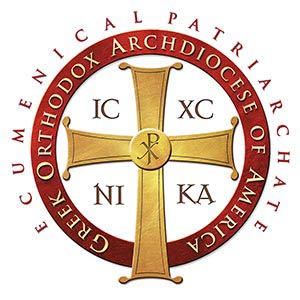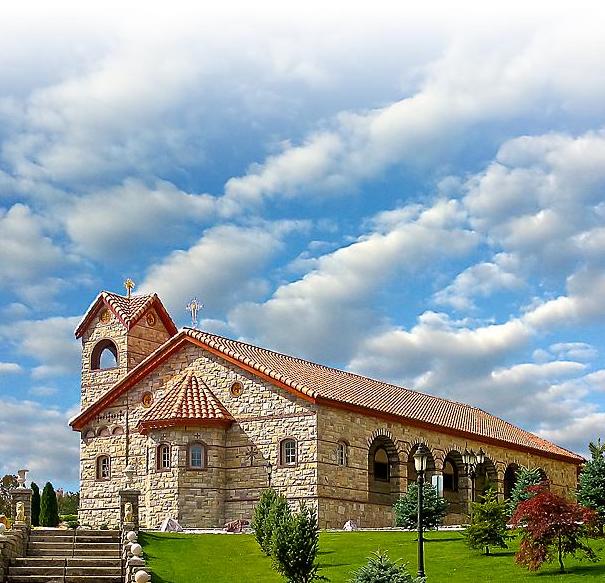He puts an end to the woman's fear ... He sets her right, in respect of her thinking to be hid ... He exhibits her faith to all, so as to provoke the rest also to emulation ...
St. John Chrysostom
Homily 31 on Matthew 9, 4th Century
In this case indeed He discloses also another sign, and that no small one, of His own Godhead, and of His equality in honor with the Father. For whereas they said, "To unbind sins pertains to God only," He not only unbinds sins, but also before this He makes another kind of display in a thing which pertained to God only; the publishing the secrets in the heart. For neither had they uttered what they were thinking.
St. John Chrysostom
Homily 29 on Matthew 9, 4th Century
Here he names a comprehensive thing. For the Apostleship even is called a ministry, and every spiritual work is a ministry. This is indeed a name of a peculiar office (viz. the 502 diaconate); however, it is used in a general sense. "Or he that teacheth, on teaching." See with what indifference he places them, the little first and the great afterwards, again giving us the same lesson, not to be puffed up or elated...."Or he that exhorteth, on exhortation." And this is a species of teaching too. For "if ye have any word of exhortation," it says, "speak unto the people." (Acts xiii. 15.) Then to show that it is no great good to follow after virtue unless this is done with the proper rule, he proceeds, "He that giveth" (<greek>metadidois</greek>, imparteth), "let him do it with simplicity." For it is not enough to give, but we must do it with munificence also, for this constantly answereth to the name of simplicity...For it is not enough to show mercy, but it behooves us to do it with a largeness and an ungrudging spirit, or rather not with an ungrudging, but even with a cheerful and rejoicing one, for not grudging does not amount to rejoicing...writing to the Corinthians also, he insisted very strongly upon. For to rouse them to such largeness he said, "He that soweth sparingly shall reap also sparingly, and he which soweth bountifully shall reap also bountifully. (2 Cor. ix. 6.) But to correct their temper he added, "Not grudgingly or of necessity." (ib. 7.) For both the shower of mercy ought to have, both ungrudgingness and pleasure.
St. John Chrysostom
Homily 21 on Romans 7, 4th Century
Through the toil of prayer and the anguish of your heart commune with those who are grieved at heart, and the Source of mercy will be opened up to your petitions.
St. Isaac of Syria
Unknown, 7th century
If your heart is brazenly confident of your works and knowledge, then know that this foreshadows impending tribulation.
St. Isaac of Syria
The Four Books, 7th century
Though in the beginning He Himself went about and did not require so much faith of those who came to Him, in this case they approached Him, and faith was also required on their part. For the words "Seeing their faith refer to the faith of those who had let the man down."
Saint John Chrysostom
Homily XXIX on Matthew IX, 1, 2, Fourth Century
Forasmuch then as they had demonstrated such great faith, [the Lord] also demonstrated His own power with all authority absolving [the paralytic's] sins, and signifying in all ways that He is equal in Honor with Him who begat Him
Saint John Chrysostom
Homily XXIX on Matthew IX, 1, 2, Fourth Century
[The Lord] does not on all occasions require faith on the part of the sick - as for instance when they are mentally ill or in any other way, through their disease, have no self control. However, in this case the sick man also had part in the faith, for he would not have allowed himself to be let down, unless he had believed.
Saint John Chrysostom
Homily XXIX on Matthew IX, 1, 2, Fourth Century
. . . every spiritual work is a ministry. . . It is not enough to give, but we must also do it with magananimity, for this always answers to the name of simplicity. . . It is not enough to show mercy, but it behooves us to do it with openhandedness and an ungrudgin spirit. . . even with a cheerful and rejoicing one. . . He said, "He who sows sparingly will also reap sparingly, and he who sows bountifully will also reap bountifully" (II Cor. 9:6). . .In this way the widow outweighed many talents by the two mites, for her spirit ws large.
Saint John Chrysostom
Homily XXI on Romans XII., Fourth Century
God listens, not to our voice, but to our heart. He does not need to be prodded with shouts, since He sees our thoughts, as the Lord proved when He asked, "Why do you think evil in your hearts?" And elsewhere He stated: "All the assemblies shall know that I am He who searches minds and hearts."
Saint Cyprian of Carthage
The Lord's Prayer, Third Century
In this case in fact He also discloses another sign - and that no small one - of His own Godhead, and of His equality in honor with the Father. For when they said, "To unbind sins pertains to God alone," He not only unbinds sins, but prior to this He makes another kind of display of a thing which pertained only to God: publishing the secrets of the heart. For they had not vocalized what they were thinking.
Saint John Chrysostom
Homily XXIX on Matthew IX, 1, 2, Fourth Century
In this place He gives a complete likeness of the resurrection. Healing wounds of mind and body, He forgives the sins of souls and makes an end of the infirmity of the flesh: This is to cure the whole man. And though it is a great thing to forgive men their sins. . . nevertheless, it is a much more divine work to give resurrection to their bodies, because the Lord is Himself the resurrection.
Saint Ambrose
The Healing of the Paralytic, P. L. 15 (col. 1638), Fourth Century
The Lord looks with affection on the humble. . .Learn, you who are sick, to gain health through prayer. Should you be diffident because of your grave sins, seek the prayers of others, call upon the Church to pray for you, and in His regard for her, the Lord will give what He could refuse to you.
Saint Ambrose
The Healing of the Paralytic, P. L. 15 (col. 138), Expos., in Toal, IV: 182, 183., Fourth Century
For though it is a grace, yet it is not poured forth at random, but framing its measure according to the recipients, it lets as much flow as it may find the vessel of faith that is brought to be capable of holding. . .
Saint John Chrysostom
Homily XXI on Romans XII, Fourth Century
 NEW YORK – The Department of Youth and Young Adult Ministries of the Greek Orthodox Archdiocese of America (Y2AM) released a new episode of “Be the Bee” featuring His Eminence Archbishop Elpidophoros of America.
NEW YORK – The Department of Youth and Young Adult Ministries of the Greek Orthodox Archdiocese of America (Y2AM) released a new episode of “Be the Bee” featuring His Eminence Archbishop Elpidophoros of America.
 NEW YORK – On Friday, July 12, 2019, His Eminence Archbishop Elpidophoros of America welcomed His Eminence Metropolitan Savas of Pittsburgh and a delegation from the Metropolis of Pittsburgh to the Archdiocese to discuss plans for the 45th Biennial Clergy Laity Congress of the Greek Orthodox Archdiocese of America and the 2020 National Philoptochos Biennial Convention, scheduled to convene in Cleveland, Ohio, on June 28-July 3, 2020.
NEW YORK – On Friday, July 12, 2019, His Eminence Archbishop Elpidophoros of America welcomed His Eminence Metropolitan Savas of Pittsburgh and a delegation from the Metropolis of Pittsburgh to the Archdiocese to discuss plans for the 45th Biennial Clergy Laity Congress of the Greek Orthodox Archdiocese of America and the 2020 National Philoptochos Biennial Convention, scheduled to convene in Cleveland, Ohio, on June 28-July 3, 2020.
 NEW YORK – His Eminence Archbishop Elpidophoros wishing to further promote the value and importance of monasticism in our Οrthodox tradition and the spiritual life of the faithful, decided to convene a Monastic Assembly, on September 21-22, 2019 in the Holy Monastery of Saint Nektarios, in Roscoe, NY.
NEW YORK – His Eminence Archbishop Elpidophoros wishing to further promote the value and importance of monasticism in our Οrthodox tradition and the spiritual life of the faithful, decided to convene a Monastic Assembly, on September 21-22, 2019 in the Holy Monastery of Saint Nektarios, in Roscoe, NY.

